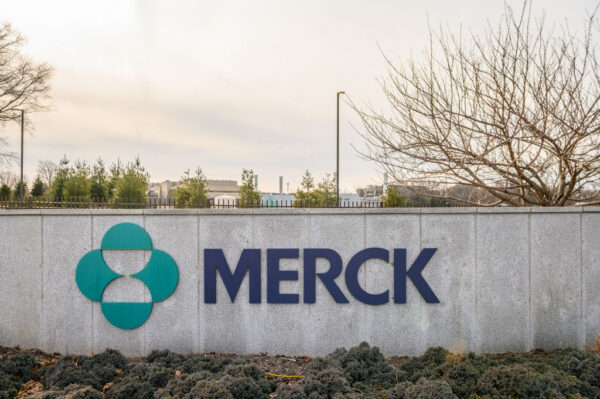
Cancer drug dealmaking is heating up around promising candidates with the potential to top Merck by going after two targets versus the one addressed by the pharmaceutical giant’s blockbuster immunotherapy, Keytruda. Now Merck is joining in with a $588 million deal of its own.
The agreement announced Thursday gives Merck global rights to LM-299, which has reached early clinical development under privately held LaNova Medicines. The Shanghai-based biotech could receive up to $2.7 billion in milestone payments depending on Merck’s progress with the drug across multiple indications.
Merck’s Keytruda accounted for $21.6 billion in revenue in the first nine months of this year, a 17.6% increase compared to the same period in 2023. But Keytruda’s looming 2028 patent expiration has the pharma giant on the hunt for new drugs that can make up for the coming decline in sales for what has become the pharma giant’s top-selling product.
Keytruda is a monoclonal antibody designed to block PD-1, a checkpoint protein on immune cells. LaNova’s LM-299 is a bispecific antibody that blocks both PD-1 as well as VEGF, a protein that stimulates growth of blood vessels that support cancer growth. The promise of pairing of both of these mechanisms in a single drug shot to prominence in September with Summit Therapeutics’ report of data showing its bispecific drug, ivonescimab, topped Keytruda in a head-to-head clinical trial. In that China-only study, ivonescimab led to a 49% reduction in the risk of disease progression or death compared to Keytruda. This study was conducted by Summit’s partner, Akeso. Ivonescimab is already approved in China as a treatment for advanced cases of non-small cell lung cancer.
Last month, LaNova announced the close of $42 million in financing to support clinical development of its pipeline, including LM-299. That drug’s Phase 1 test in China is enrolling patients with solid tumors. In preclinical research, LaNova has said the drug effectively blocked the PD-1 and VEGF signaling pathways. The company also said its tests indicate LM-299 has the potential for a better safety profile.
[Story updated, adding the following two paragraphs with analyst comments.] In a research note sent to investors, Leerink Partners analyst Daina Graybosch said Merck’s acquisition agreement for LM-299 lends validation to a bispecific approach to PD-1 and VEGF. She noted that the pharma giant is one of two companies (the other being Roche) with extensive experience combining VEGF-targeting drugs with a checkpoint inhibitor. Merck has a partnership with Eisai on the Japanese company’s lenvatinib, brand name Lenvima, a drug that blocks activities of three VEGF receptors. The combination of Keytruda and Lenvima has approvals in renal cell carcinoma and endometrial carcinoma. While this partnership has also encountered clinical trial failures, Graybosch said Leerink believes Merck can use its prior experience with drugging PD-1 and VEGF to guide the development of the LaNova drug.
“Of the failures, there is evidence to suggest toxicity and resulting treatment discontinuations from lenvatinib may have contributed to the efficacy failures, and we interpret Merck’s investment in LM-299 as a belief that improved toxicity observed with the bispecific class can overcome challenges with their first endeavor,” Graybosch said.
Interest in bispecifics that target both PD-1 and VEGF drugs is growing. Crescent Biopharma’s bispecific candidate addressing those two targets is preclinical, but the company is piggybacking on the industry and investor attention to the drug class, recently striking a deal to go public in a reverse merger.
On Wednesday, BioNTech announced it is paying $800 million up front to acquire partner Biotheus and its PD-L1/VEGF bispecific antibody, BNT327/PM8002. Last year, the German company secured global rights to the molecule outside of Greater China for $55 million up front. In addition to securing rights to the drug itself, the new deal enables BioNTech to expand its footprint with the addition of R&D and biologics manufacturing capabilities in China. BNT327/PM8002 has reached mid-stage studies in advanced cases of breast and lung cancers. The bispecific antibody is also in Phase 1/2 testing in combination with an antibody drug conjugate from BioNTech’s partnership with Duality Bio.
Merck has not disclosed its clinical trial plans for LM-299. In a prepared statement, Dean Li, president of Merck Research Laboratories, said the company is continuing to assemble an oncology pipeline spanning differentiated mechanisms and multiple modalities. Merck expects to close the acquisition of the LaNova drug by the end of this year.
Photo: Christopher Occhicone/Bloomberg, via Getty Images










